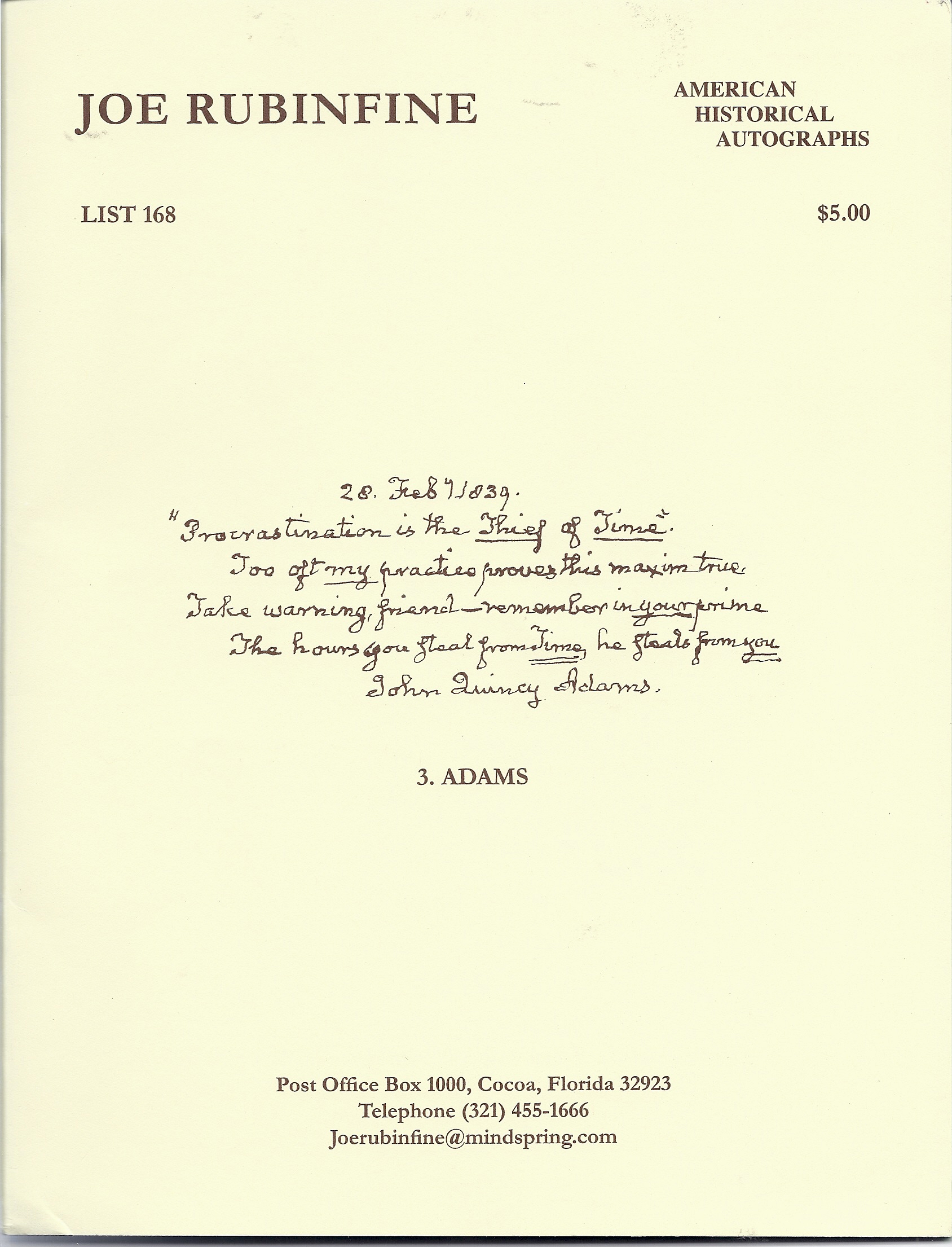America's Past through its Signed Documents from Joe Rubinfine
- by Michael Stillman

America's Past through its Signed Documents from Joe Rubinfine
Recently arriving here was List 168 from Joe Rubinfine American Historical Autographs. This catalogue offers a selection of (naturally) one-of-a-kind documents from America's past, primarily the 18th and 19th centuries. There is a notable concentration of material from the era of the American Revolution, be it material specifically from that time, or concerning the later lives of those who participated in or gave witness to that momentous struggle. Then, there is another concentration of material that focuses around America's next enormous battle, the destructive internal confrontation known as the Civil War. Finally, a few items take us into the 20th century, with a look at some of the last remnants of the Old West, from Buffalo Bill's Wild West Show and Annie Oakley's sharpshooting, to the Western artist Georgia O'Keeffe. Rubinfine offers a glimpse of America's history through the documents and signatures of those who helped make it. Here are some examples.
We start with a petition that represents American forgiveness at its best, forgiveness for a man whose once vitriolic attack branded him a traitor. Reverend Jacob Duche was a highly respected clergyman from Philadelphia. Rev. Duche was appointed Chaplain to the Continental Congress on July 6, 1776, just two days after a noted declaration was issued from its halls. Rev. Duche had come to Congress' attention after offering a prayer a couple of years earlier effectively calling on God to overthrow their colonial oppressor. Duche would later strike all references to the British King from his prayer books. He seemed the prototypical radical American patriot. He would even be arrested and detained by the British once the Revolution began. And yet, by October of 1777, Rev. Duche was singing a different tune, and that song was a vitriolic attack on the Revolution and most of those who led it. On October 8, he sent a letter to George Washington, and while respectful to the American General and a few other patriots, the rest were subject to bitter attack. Duche reversed his other positions, claiming his removal of the King's name from prayer books was done only to keep the churches from splitting apart during this rancorous time, and that his seeming support of independence was because he thought this call was a mere dramatic bluff to obtain better treatment from the British, not because he thought the colonists seriously sought to be free. In his letter, the Reverend then goes on to compare most of the revolutionary leaders to previous leaders in colonial times in a most derogatory manner. Washington delivered the letter to Congress, which declared Duche a traitor. The Reverend was forced to flee to England, his property confiscated.
Fast forward to 1793. Rev. Duche is now in ill health, suffering in the cold and damp climate of England, and wishes to spend his last years in his homeland. Despite his previous actions, many American patriots evidently were willing to put bygones aside and look to his earlier days. This petition to Pennsylvania Governor Thomas Mifflin states that Duche has done nothing to harm America in his days in England, is now of ill health, and that his odious letter, "was occasioned by the situation in which he was placed by the Invasion of a powerful army…and not from a Disposition inimical to the Liberties…of Fellow Citizens." Among those signing the petition were three signers of the Declaration of Independence - Robert Morris, Benjamin Rush, and George Clymer. Governor Mifflin agreed, signed a pardon, and Duche was allowed to spend the remaining five years of his life in America. Item 45 is this petition, including the pardoning language signed by Mifflin. Priced at $15,000.